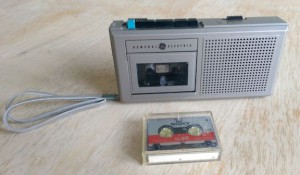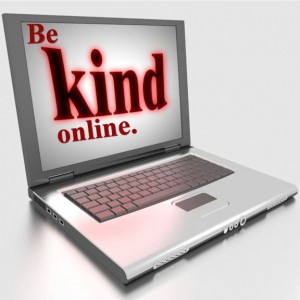This post is about yellowed old lampshades, not about a faithful dog; but I picked the title because there was some canine involvement in this week’s Clutter Comedy. My daughter’s puppy went tearing around the house without paying any attention (as puppies do) and knocked over a lamp that was part of a set of three. The inner ring of the shade, which had gotten brittle over the years, promptly shattered. So we bought three new lampshades and were surprised by how much brighter the room looked without the yellowed old shades—we hadn’t realized how totally worn out they were!
I’m not sure if replacing lampshades counts as getting rid of clutter, as it doesn’t reduce the amount of stuff in the house. Maybe it belongs in the regular maintenance category instead. But anyway, there is a good lesson here: We often don’t notice when things get worn out because it happens so gradually, our brains get fooled into believing it was always like that. So, whether we’re talking about clutter or about maintenance, it’s important to look around from time to time and ask: Is everything in this room still as useful as when it was new? And if not, should it be repaired, replaced, or discarded?
About Clutter Comedy: Every Sunday (which I envision as a day of rest after a productive week of de-cluttering) I post a Clutter Comedy article describing my most memorable clutter discovery of the week. Other bloggers who wish to join in are welcome—just post a link in the comments! There’s no need to publish any “before” photos of your clutter, if they are too embarrassing. The idea is simply to get motivated to clean it up, while having a bit of fun too!









